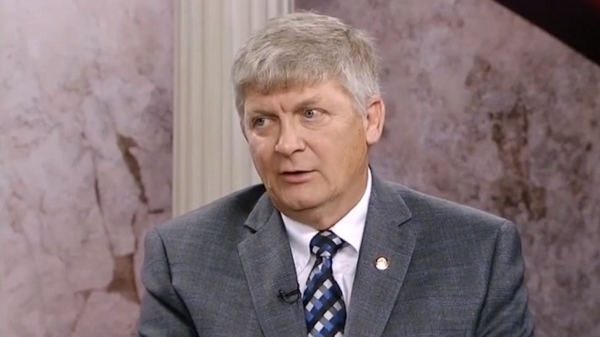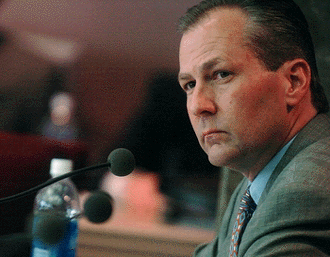By Larry Sims
To convince Americans to ratify the Constitution, James Madison offered this contribution: “If men were angels, no government would be necessary. If angels were to govern men, neither external nor internal controls on government would be necessary. In framing a government which is to be administered by men over men, the great difficulty lies in this: you must first enable the government to control the governed; and in the next place oblige it to control itself. A dependence on the people is, no doubt, the primary control on the government; but experience has taught mankind the necessity of auxiliary precautions. Federalist 51.”
What did Madison mean by “auxiliary precautions?” This is an indisputable truth: We are an imperfect people ruled by an imperfect government with imperfect leaders. Elections are dependent upon the people, but the hearing of government is often impaired. How do “auxiliary precautions” constraint the activities of government and those hired by the people to lead it?
At the federal level we rely on our elected representatives (the President and Senators) to use wisdom in choosing members of the Judiciary, who are appointed for life. Options are available to remove errant Judges, but they are rarely exercised.
Simple guidelines are in place to define honorable behavior. These “auxiliary precautions” are called the Judicial Canons. Those offered by the American Bar Association are worth repeating:
Canon 1
A judge shall uphold and promote the independence, integrity, and impartiality of the judiciary, and shall avoid impropriety and the appearance of impropriety.
Canon 2
A judge shall perform the duties of judicial office impartially, competently, and diligently.
Canon 3
A judge shall conduct the judge’s personal and extrajudicial activities to minimize the risk of conflict with the obligations of judicial office.”
These simple statements of the judicial code of honor will be put to the test in just a few days. The U. S. Supreme Court will be reviewing a case on state law regarding same sex marriage. One apparent ethical problem rests on the shoulders of Justices Ginsberg and Kagan. Both have presided over same sex weddings, one in judge’s chambers in the U. S. Supreme Building. This case will test the definitions of impartially, integrity, competence and conflict of interest. Will Ginsberg and Kagan ignore the Canons and rule on this matter in the face of an obvious bias demonstrated by their actions? We can only hope that “auxiliary precautions” will prevail.
Another example is closer to home. Without quoting chapter and verse of Alabama Ethics laws, the underlying principle mandates this simple commandment: an elected official cannot use public office for personal gain. A dark cloud of doubt hangs over the Alabama Legislature due to the actions of Speaker Mike Hubbard. The case has not gone to trial, but his actions have caused a prosecutor and a grand jury to establish a series of questions based on Hubbard’s actions that warrant a trial.
The allegations have taken their toll. Along with the uncertainty over the Speaker’s future come questions about any action of the legislature. The overriding question is this: Why is Hubbard still Speaker? The dark cloud would have dissipated if the members had chosen a new leader, but they refused to bulk status quo, paving the way for a potential colossal embarrassment for the legislature, state government in general, and the Republican Party.
Hubbard is given credit for “transforming” the legislature into a conservative, pro-business body. This flies in the face of thousands of Republican activists who have worked for decades to make this transition possible. The rallying cry has often been “honesty in government. That is being put to the test with the upcoming trial. Have Republicans rallied around a potentially corrupt leader for the sake of holding on to power? Has the lesson of “auxiliary precautions” been lost on Alabama Republicans?
Finally, one group that needs fewer “auxiliary precautions” is public educators. The vast majority of public teachers and administrator enter the profession because they consider it “a calling”. The pay is acceptable, but the promise of fame or fortune is not in the cards.
In spite of this, the Code of Ethics for public educators is comprehensive and duplicated at the state and local level. Press reports of misconduct or mal practice are common, but confined to the smallest minority of teachers and administrators. When this occurs, it usually involves criminal activity, such as an inappropriate relationship with a student. Society has a low or zero tolerance for such blatant disregard for accepted moral standards.
Alabama law generally defines morality : (School Code 1927, §354; Code 1940, T. 52, §337.) “The State Superintendent of Education shall have authority to revoke any certificate issued under the provisions of this chapter when the holder has been guilty of immoral conduct or unbecoming or indecent behavior.” Since no state employee is above the law, it is assumed that “immoral conduct or indecent behavior” applies to the State Superintendent of Education as well, and it would be the responsibility of the Governor and the State Board of Education to deal with this matter if it occurs.
In modern, politically correct America, it is often a struggle to define right and wrong, good and evil, or “immorality.” In his book Still the Best Hope: Why the World Needs American Values to Triumph , Dennis Prager voices frustration over what he calls moral confusion: “(I regret having to define) terms that should not need definition (good and evil), because a generation of Westerners has been taught that good and evil are totally subjective terms.”
Why should it be necessary to define unwritten moral societal codes based on a general understanding of morality in the minds of the people? “Auxiliary precautions” are necessary, but they can never replace our understanding of Natural Law ingrained in each of us based our membership in the human race.
Larry Sims is a former State Legislator who teaches political science at an Alabama community college. He is a life long Republican.























































